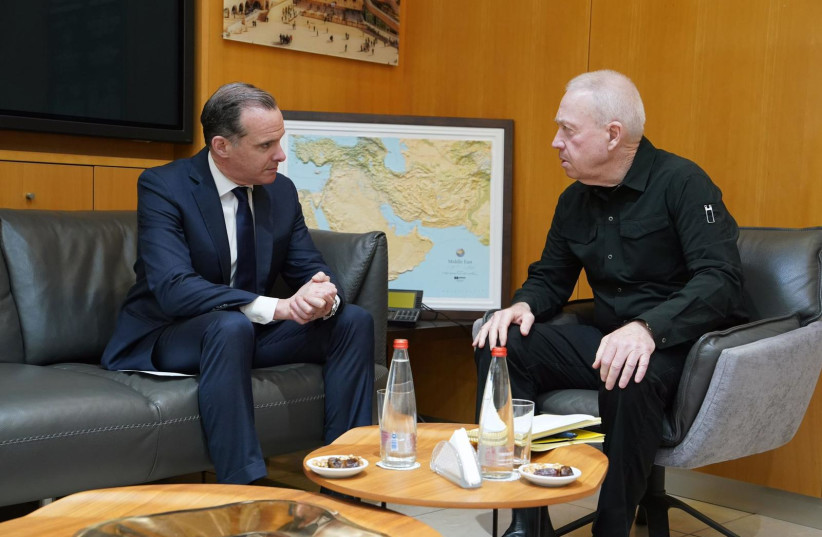The Biden administration shares the objective of the Israeli government to return people to their homes in the north but disagrees that a war in Lebanon is the way to achieve the objective, the White House Coordinator for the Middle East and North Africa, Brett Mcgurk, told the Israeli-American Council's national summit on Friday afternoon.
"We also fully stand with Israel and their defense of their people and their territory against Hezbollah," he said, then referenced Israel's strike in Beirut earlier in the day that killed Hezbollah commander Ibrahim Aqil.
Aqil had a $7 million bounty on his head for two 1983 Beirut truck bombings that killed more than 300 people at the American embassy and a US Marines barracks.
"So nobody shed a tear for him," McGurk said to applause. "Now that said, we have disagreements with the Israelis about tactics and how you measure escalation risk."
McGurk said, "It's a very concerning situation," but he's very confident that through diplomacy, deterrence and other means, "we'll work our way out of it."
"But we want a diplomatic settlement in the north. That is the objective, and that's what we're working towards," he said.

Addressing fears
McGurk addressed recent media reports swirling about new deals on the table and the Biden administration's doubt in reaching a ceasefire before the end of Biden's presidency.
"There can be a deal. I think any process often looks impossible until it's done, so I would never say this will not get done," he said. "This is unique because every twist and turn is in the media, it's in the press. I think sometimes these things are better done behind those doors, but we're going to continue to work at it."
McGurk did not comment on reports of a new deal proposal that differs from the US proposal of reaching a total ceasefire in three stages.
"It's a good question. I'm not going to negotiate here. I mean, there are proposals on the table. There are proposals before the Israelis, before the Hamas side," he said. "Again, we're going to continue."
McGurk said Israel has "been quite flexible" and the biggest obstacle is the ratio of the prisoners to the hostages. He also called Yayha Sinwar an obstacle to the deal.
McGurk said he spent two weeks in Egypt and Qatar talking about the nuts and bolts of the deal with a list of hostages, a list of prisoners, similar to the November deal.
"Basically, we were down to that level of detail," he said.
About three days after returning home from the negotiating trip, the six hostages, including three that were on the list we were negotiating, were killed in a tunnel underneath Rafah.
It's a lot about the willingness to do a deal right now, he said.
"I'm not going to call false strikes. It's a difficult negotiation. We are a mediator in this negotiation, together with Egypt and Qatar," he said. "Israel has put an awful lot in the deal moving very far forward, but we need some engagement on the Hamas side to get the kind of final revisions and finish. Until we have that happen, there's not going to be any agreement."
